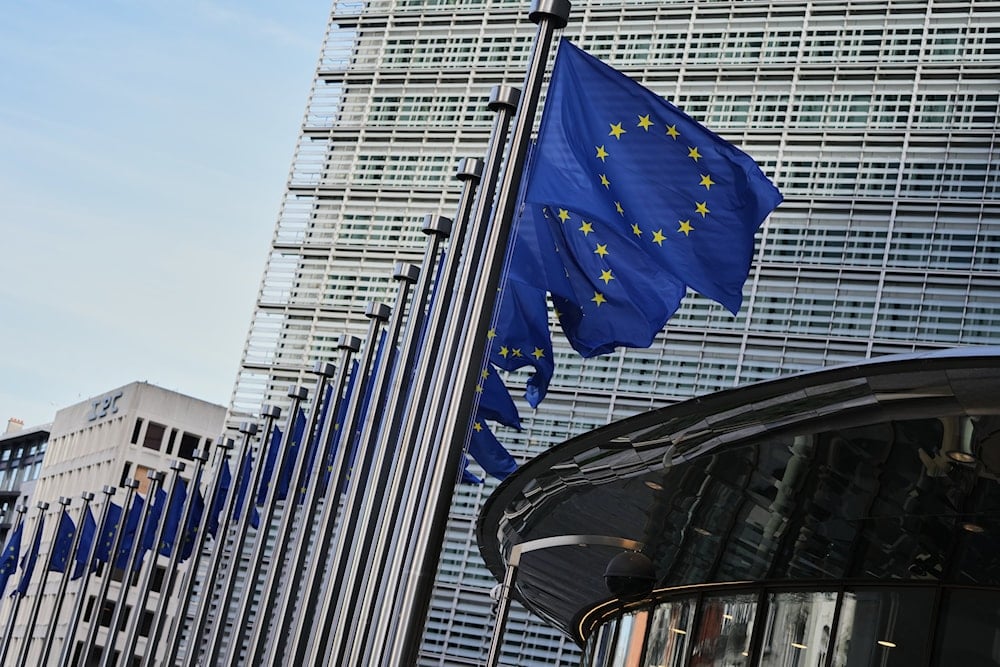US supports EU in using frozen Russian assets to aid Ukraine
The United States has expressed its support of the European Union using frozen Russian assets to end the war in Ukraine.
-

European Union flags flap in the wind outside of EU headquarters in Brussels, Tuesday, Nov. 4, 2025 (AP)
The United States fully supports the idea of the European Union using frozen Russian assets to aid Ukraine, with the details and potential implications still under discussion, according to a US official cited by Reuters on Friday.
The report stated that the US is fully backing the EU’s use of frozen Russian assets as a means to help bring an end to the conflict in Ukraine.
The European Commission unveiled a proposal on October 23 that would allow EU governments to use up to €185 billion of frozen Russian sovereign assets, out of roughly €210 billion held across Europe, to support Ukraine.
However, the plan encountered a stalemate because Belgium, where a large portion of the assets is held via the depository Euroclear) demanded strong legal guarantees and assurances against risk in case of Russian retaliation.
On October 1st, the Kremlin strongly objected, warning that any move to use Russia’s frozen assets would amount to theft and that it would pursue legal action against individuals or countries involved.
According to a commission document published on November 7, if EU member states fail to reach an agreement on using the assets, they may face annual interest payments of up to €5.6 billion indefinitely, highlighting the urgency of securing a deal.
Analysts warn that seizing or redirecting frozen Russian assets would severely undermine trust in Western financial systems, setting a dangerous precedent that blurs the line between sanctions and outright expropriation.
Such actions risk convincing non-Western states that their reserves, investments, or sovereign wealth funds are no longer safe within Western jurisdictions. This could accelerate the ongoing de-dollarization drive, pushing countries to move reserves into gold, commodities, or non-Western financial systems, thereby weakening confidence in the euro and dollar as stable reserve currencies.

 2 Min Read
2 Min Read









